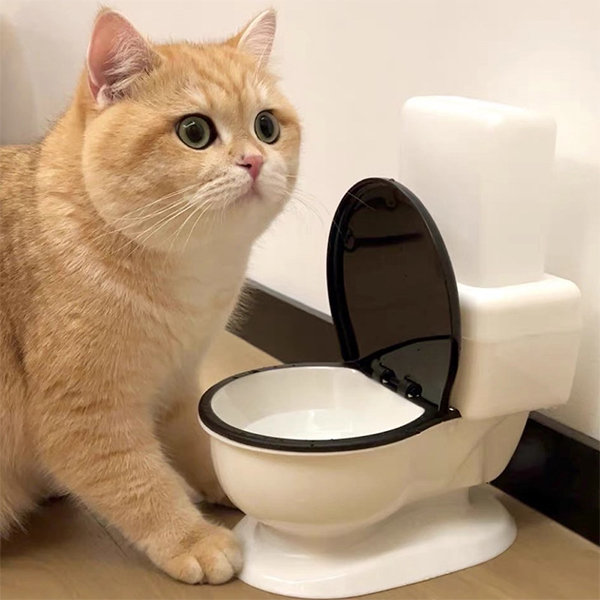Prevent Plumbing Problems: Don't Flush Cat Poop Down Your Toilet - Expert Guidance
Prevent Plumbing Problems: Don't Flush Cat Poop Down Your Toilet - Expert Guidance
Blog Article
They are making several great points about How to Dispose of Cat Poop and Litter Without Plastic Bags overall in this great article down below.

Intro
As cat owners, it's essential to bear in mind exactly how we throw away our feline good friends' waste. While it may seem convenient to flush pet cat poop down the commode, this technique can have destructive repercussions for both the atmosphere and human wellness.
Alternatives to Flushing
Luckily, there are safer and a lot more responsible ways to dispose of cat poop. Take into consideration the complying with alternatives:
1. Scoop and Dispose in Trash
One of the most common method of disposing of cat poop is to scoop it into a naturally degradable bag and toss it in the garbage. Make certain to use a devoted litter inside story and take care of the waste promptly.
2. Use Biodegradable Litter
Opt for eco-friendly feline litter made from materials such as corn or wheat. These trashes are environmentally friendly and can be safely dealt with in the trash.
3. Bury in the Yard
If you have a lawn, take into consideration burying pet cat waste in a designated location far from veggie gardens and water resources. Make certain to dig deep enough to prevent contamination of groundwater.
4. Set Up a Pet Waste Disposal System
Buy a pet waste disposal system especially made for feline waste. These systems utilize enzymes to break down the waste, reducing odor and ecological effect.
Wellness Risks
Along with environmental issues, purging feline waste can additionally position health and wellness threats to people. Pet cat feces may consist of Toxoplasma gondii, a bloodsucker that can create toxoplasmosis-- a potentially severe health problem, particularly for pregnant women and people with damaged immune systems.
Environmental Impact
Purging feline poop presents damaging virus and parasites into the supply of water, presenting a significant danger to water environments. These pollutants can adversely impact aquatic life and compromise water quality.
Final thought
Responsible family pet possession prolongs beyond giving food and shelter-- it also involves appropriate waste administration. By avoiding flushing cat poop down the toilet and going with alternative disposal methods, we can decrease our environmental footprint and safeguard human health.
Why You Should Never Flush Cat Poop Down the Toilet
A rose by any other name might smell as sweet, but not all poop is created equal. Toilets, and our sewage systems, are designed for human excrement, not animal waste. It might seem like it couldn’t hurt to toss cat feces into the loo, but it’s not a good idea to flush cat poop in the toilet.
First and foremost, assuming your cat uses a litter box, any waste is going to have litter on it. And even the smallest amount of litter can wreak havoc on plumbing.
Over time, small amounts build up, filling up your septic system. Most litter sold today is clumping; it is made from a type of clay that hardens when it gets wet. Ever tried to scrape old clumps from the bottom of a litter box? You know just how cement-hard it can get!
Now imagine just a small clump of that stuck in your pipes. A simple de-clogger like Drano isn’t going to cut it. And that means it’s going to cost you big time to fix it.
Parasitic Contamination
Believe it or not, your healthy kitty may be harboring a nasty parasite. Only cats excrete Toxoplasma in their feces. Yet it rarely causes serious health issues in the cats that are infected. Most people will be fine too if infected. Only pregnant women and people with compromised immune systems are at risk. (If you’ve ever heard how women who are expecting are excused from litter cleaning duty, Toxoplasma is why.)
But other animals may have a problem if infected with the parasite. And human water treatment systems aren’t designed to handle it. As a result, the systems don’t remove the parasite before discharging wastewater into local waterways. Fish, shellfish, and other marine life — otters in particular — are susceptible to toxoplasma. If exposed, most will end up with brain damage and many will die.
Depending on the species of fish, they may end up on someone’s fish hook and, ultimately on someone’s dinner plate. If that someone has a chronic illness, they’re at risk.
Skip the Toilet Training
We know there are folks out there who like to toilet train their cats. And we give them props, it takes a lot of work. But thanks to the toxoplasma, it’s not a good idea.

As a person who reads on Can You Flush Cat Poop Down The Toilet?, I assumed sharing that piece of content was worth the trouble. Sharing is good. You won't know, you will be doing someone a favor. Many thanks for taking the time to read it.
Book A Free Estimate Report this page